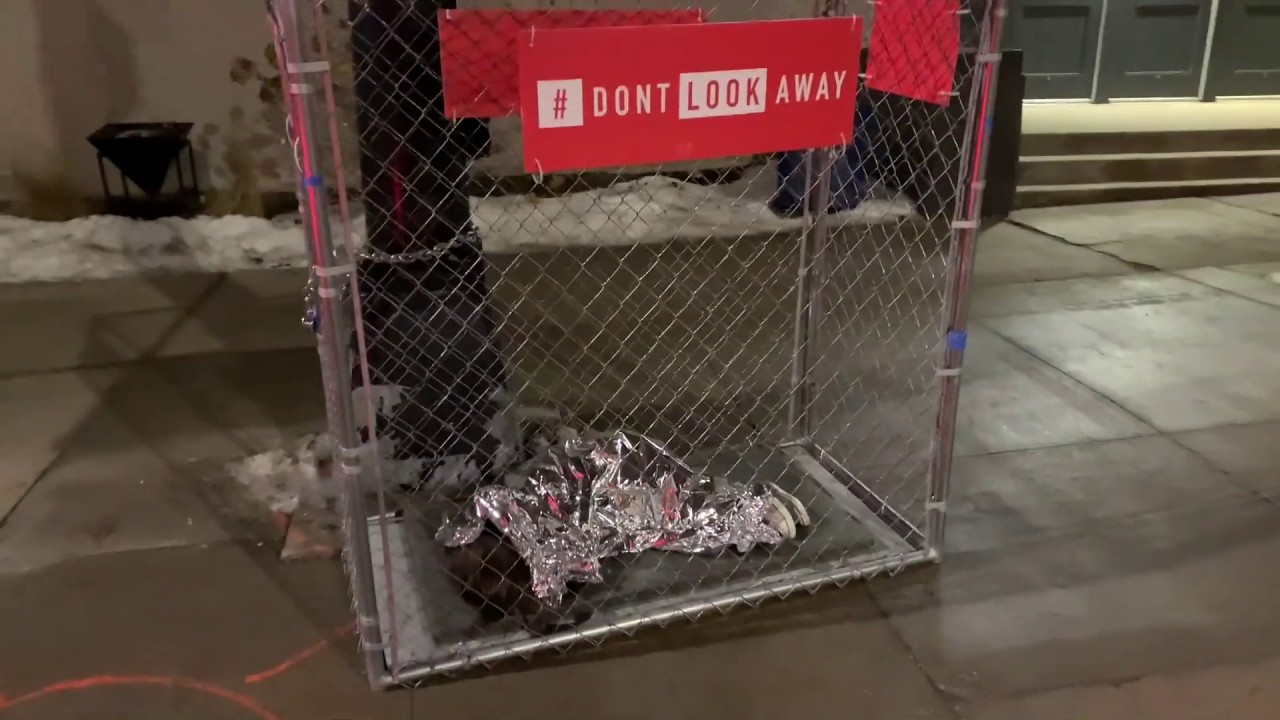
#DontLookAway campaign brings child detention and family separation to the center of the Iowa Caucuses
More than a dozen chain-link fences were set up at different caucus sites across Des Moines, Iowa to represent the crisis still happening at the Southern…
Monday was the first day in what will surely be a long and contentious process to determine who will represent the Democrats in the November presidential election against incumbent Donald Trump.
For months, candidates like Joe Biden, Bernie Sanders, Elizabeth Warren, Pete Buttigieg, Andrew Yang and Amy Klobuchar have poured time and money into the Hawkeye State, but on the big day, another campaign has taken center stage.
As voters rose in Des Moines, Iowa, the state’s capital, Monday, they discovered in more than a dozen chain-link cages outside certain caucus sites across the city.
They were part of a campaign by RAICES, or The Refugee and Immigrant Center for Education and Legal Services, Texas’ largest nonprofit providing immigration legal services.
The cages’ dimensions were small and contained child figures lying on padded mats and covered with space blankets. Blaring from speakers were the sounds of children crying. It’s a similar living condition to that which is seen at detention centers on the Southern border and in locations across the country.
On each chain-link fence, a red sign prominently displayed #DontLookAway in white text, reminding caucus-goers of the child detention and family separation crisis happening at the Southern border.
Today caucus-goers in Iowa woke up to more than a dozen kids in cages all over the city of Des Moines.
— RAICES (@RAICESTEXAS) February 3, 2020
We came to remind people that this remains a reality & that the issue cannot be pushed under the rug.
#DontLookAway this is a humanitarian crisis. #IowaCaucus pic.twitter.com/munyjrXdIS
The hashtag has since blown up on Twitter.
RELATED CONTENT
more than 55,000 immigrants were in detention at the height of the crisis
— Joe Rivano Barros (@jrivanob) February 3, 2020
thousands of kids were separated from their parents, w/no tracking whatsoever
hundreds of parents were deported w/out their kids
family separation is still happening#NoKidsInCages #DontLookAway pic.twitter.com/ruH7UEcQhe
There are more than 41,000 people in immigration detention RIGHT NOW, 800k+ DACA recipients might lose their protection, and 2 million+ people have been deported in the past 12 years.
— Cats Pajamas (@Katzpeejays) February 3, 2020
Thank you, @RAICESTEXAS for reminding the country that this is still happening. #DontLookAway https://t.co/szDJPMmRbs
Protect refugees. Celebrate immigrants. Vote for lawmakers who fight for human rights.
— Áine Máirtín (@AineMairtin) February 3, 2020
This is still happening in our country. Thousands of children stolen from their parents. Asylum seekers illegally turned away. Desperate people dying in U.S. custody.#BastaYa #DontLookAway https://t.co/Bu1RnQtY6v
In 2019, close to 70,000 migrant children were detained by the U.S. according to the AP. That’s up 42% compared to 2018 and in spite of the government’s own declaration that detaining children does them harm.
“Early experiences are literally built into our brains and bodies,” Dr. Jack Shonkoff, Director of Harvard’s Center on the Developing Child told AP.
A lot of those children were deported or found homes with family in the U.S., but seven have died, including Carlos Gregorio Hernandez Vasquez — a 16-year old Guatemalan who died in his cell at a Texas facility after border patrol agents failed to get him adequate medical treatment for his flu.
Approximately 4,000 still remain in custody away from their families.











LEAVE A COMMENT: